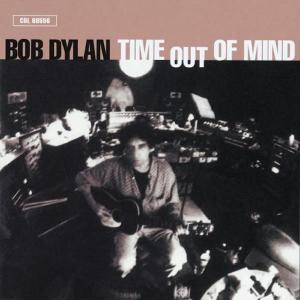
Time Out of Mind (1997)

1. Love Sick
2. Dirt Road Blues
3. Standing in the Doorway
4. Million Miles
5. Tryin' to Get to Heaven
6. 'Til I Fell in Love With You
7. Not Dark Yet
8. Cold Irons Bound
9. Make You Feel My Love
10.Can't Wait
11.Highlands
By the mid-1990s, it was easy—perhaps even fashionable—to consider Bob Dylan a spent force. His glory years long behind him, his latter-day albums drawing attention only from the most faithful, Dylan seemed content to exist as a monument rather than a musician. Then came Time Out of Mind, a record that no one quite expected and few fully understood—an album that not only returned him to critical acclaim, but won him a Grammy and something rarer still: relevance.
This was his first collection of original material in seven years, a span which in Dylan time might as well be an epoch. And while the surface details pointed to a reunion of sorts—Daniel Lanois, producer of Oh Mercy, once again at the helm—the similarities run deeper than credits. Like its predecessor, Time Out of Mind is steeped in atmosphere. It is a record that hums with darkness, its songs soaked in midnight sweat and the echo of empty rooms.
Yet where Oh Mercy floated with Lanois’s dreamy, almost cinematic textures, Time Out of Mind feels altogether more earthbound. It is grittier, less adorned, and more hauntingly human. The album is less a sequence of songs than a singular mood—a somber meditation on mortality, isolation, and emotional ruin. The voice that delivers it is cracked, worn, rasping from the edges of experience, and yet never more suited to the material. Dylan doesn’t sing these songs as much as survive them.
One could argue the individual tracks blend into one another, that no single moment leaps from the vinyl with the declarative clarity of his earlier work. But this misses the point. The record is cohesive by design. Its strength lies not in standout moments, but in cumulative weight. Songs such as Standing in the Doorway and Tryin’ to Get to Heaven don’t shine—they ache. They drift like fog across the American landscape, carrying with them loss, regret, and a flickering sense of romantic fatalism.
There are, of course, flashes of broader resonance. To Make You Feel My Love, a plaintive ballad, would go on to find greater commercial success in the voices of others—Billy Joel, Garth Brooks, Adele. But Dylan’s own version is the one that bleeds. Stripped of polish, the song becomes an offering rather than a performance. And it is this rawness, this refusal to cater to expectation, that gives Time Out of Mind its unshakable power.
In hindsight, the album was more than a return—it was a rebirth. What followed was not simply a late-career resurgence, but a sustained artistic revival that would define Dylan’s twilight years. Time Out of Mind does not seek redemption or even resolution. It simply bears witness. And in doing so, it reminded the world that Bob Dylan was not finished. He was, in fact, just beginning again.
Go back to the main page
Go To Next Review